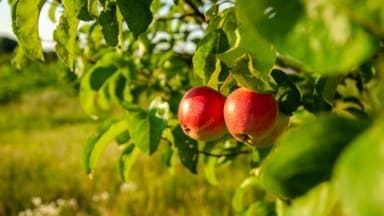
The RHS explains that due to the extreme heat and droughts in the UK in 2022, apple trees were under considerable stress, which has resulted in an inconsistent crop in 2023. While some trees have produced a decent amount of fruit, others are significantly less laden. The favourable conditions in September, however have resulted, not abundant but flavoursome fruit.
Chief Horticulturist of the RHS, Guy Barter, said: “The last 70 days before picking influence apple flavour and this year the lack of heatwaves in August and good sunshine with some, but not excessive, warmth in September is bringing fruits to maturity with plenty of sugars, some acids and bright colours – all of which make for tasty, appetising fruits.”
EU estimates by the World Apple and Pear Association (WAPA) released on 3 August 2023 also indicated a 3,3% decrease in apple crops compared to last year (to a total of 11.410.681 t). The EU pear crop for 2023 was also estimated to decrease by 12,9% compared to last year’s crop (total of 1.745.632 t). The estimates, which are accumulated from national producing associations, indicate climatic havoc which included the droughts, flooding, hail and high temperatures, negatively affected the crop across the EU.
Monday 2 October marked the start of the 2023/4 British apple season.

